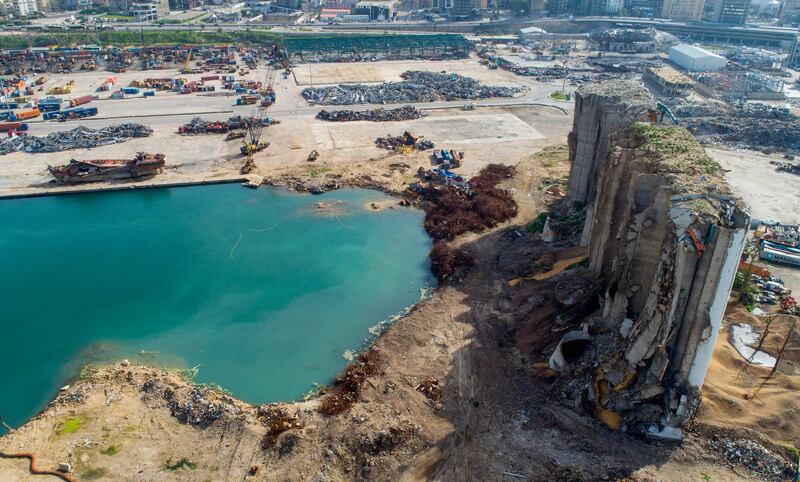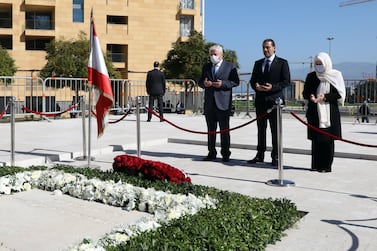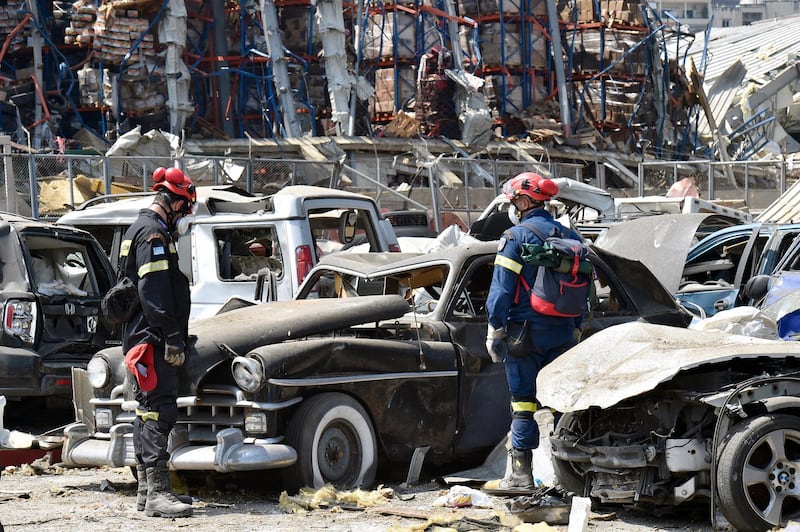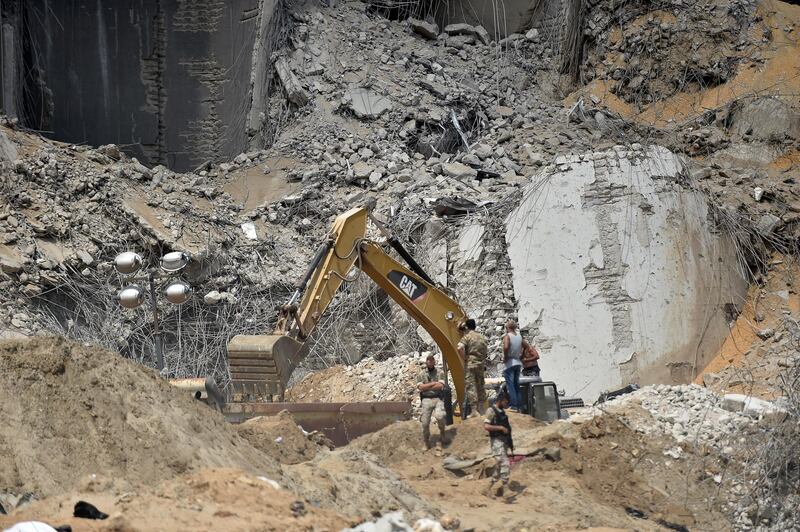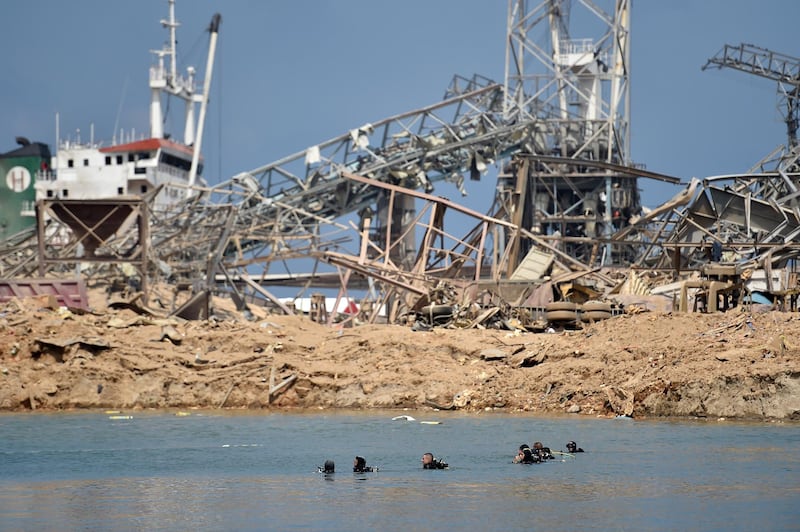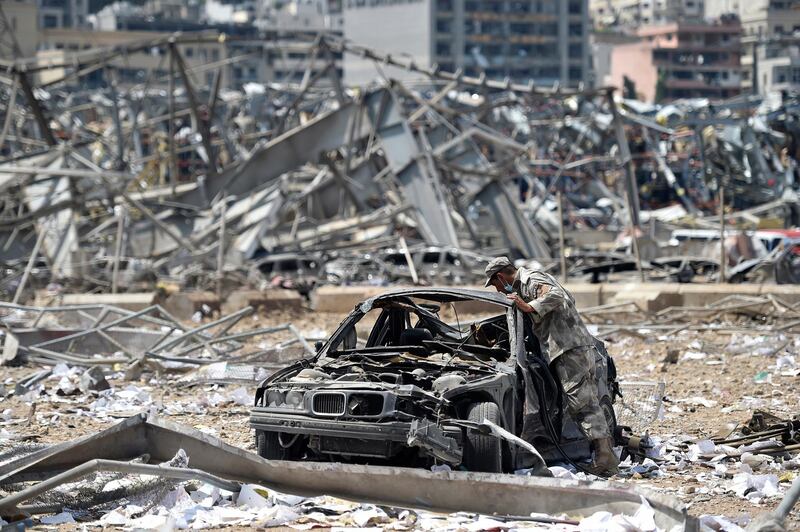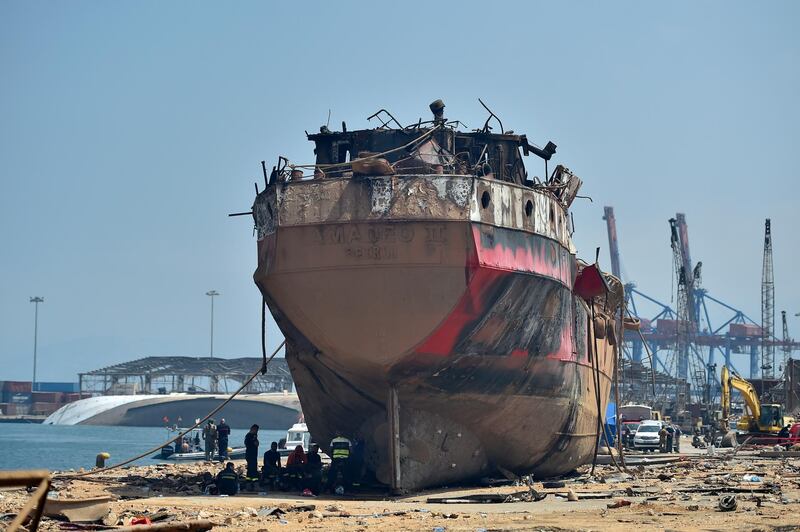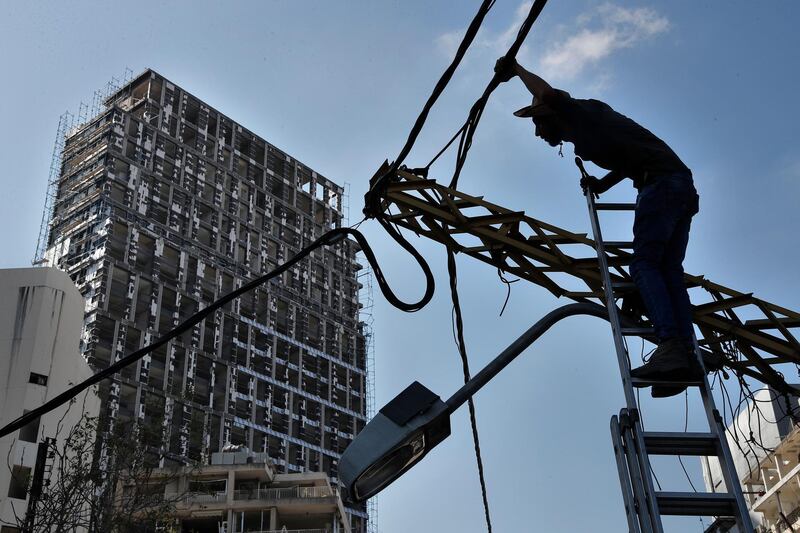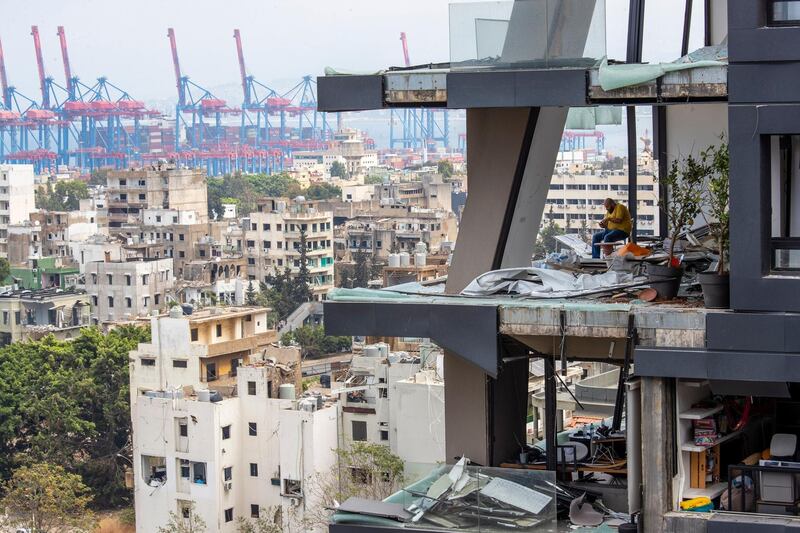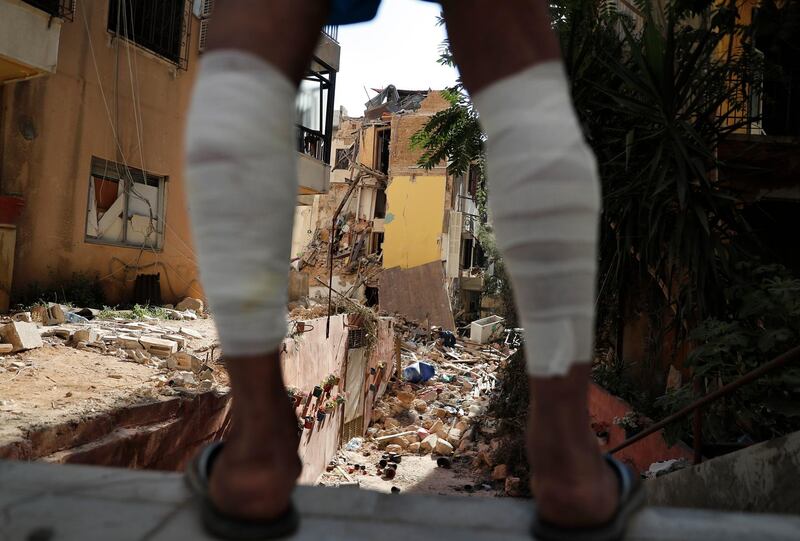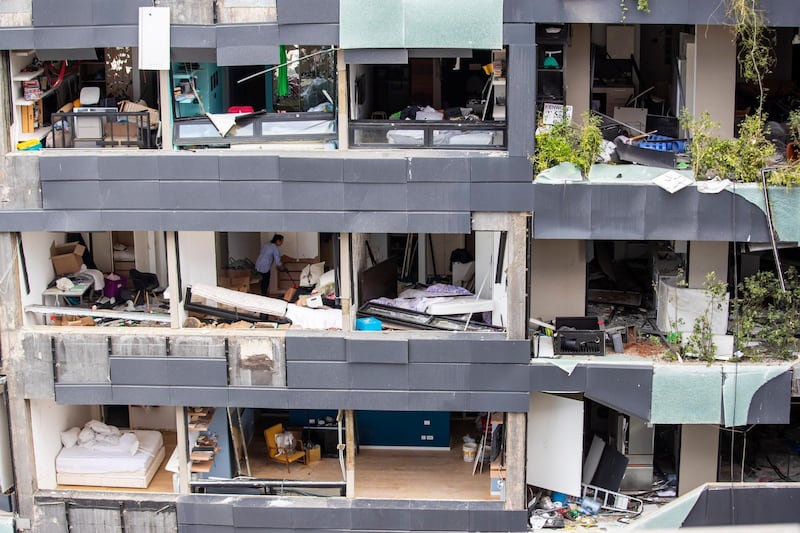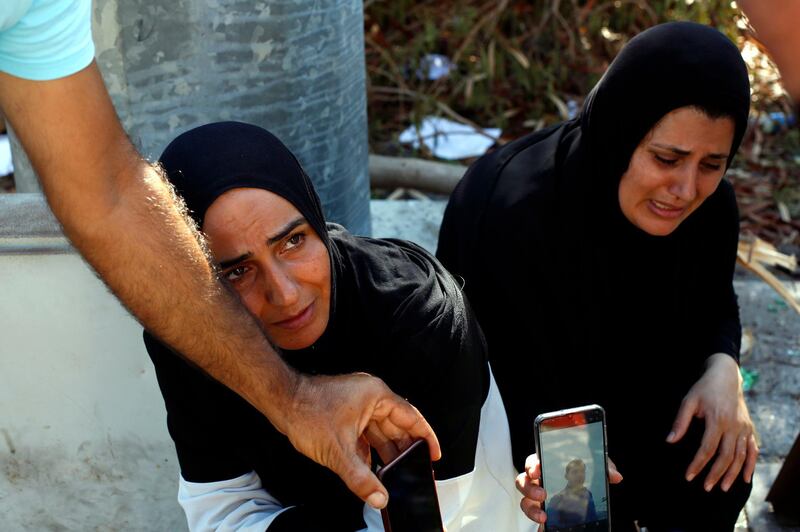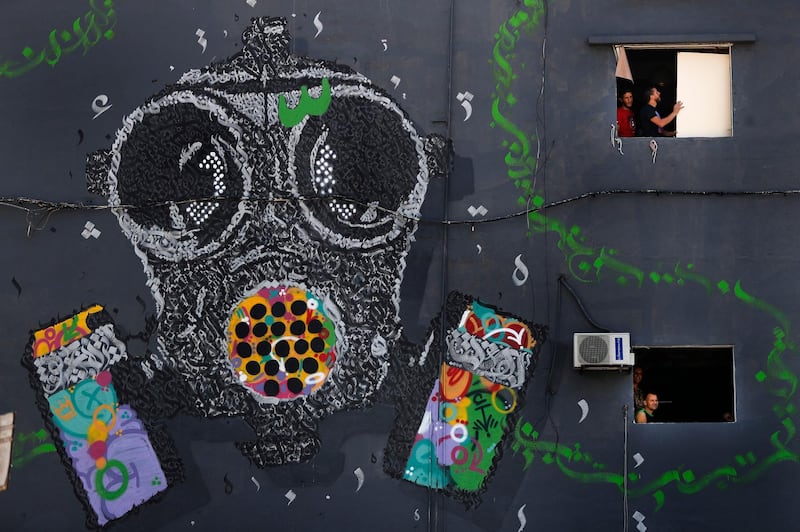Lebanon's court of cassation removed the judge investigating the August 4 explosion at Beirut port that killed more than 200 people and damaged tens of thousands of homes, the state-run National News Agency reported on Thursday.
The court was ruling on a request filed by former ministers Ali Hassan Khalil and Ghazi Zeaiter, who were both indicted over the blast by Judge Fadi Sawan.
After the request based on "legitimate suspicions", the court decided "to remove Judge Fadi Sawan from the Beirut port explosion probe and assign the case to another judge to be appointed in accordance with Article 360 of the Criminal Code", the NNA said.
The new judge must be appointed by caretaker justice minister Marie-Claude Najem and approved by the Higher Judicial Council. Ms Najem did not respond to The National's request for comment on Thursday.
Mr Sawan on December 10 charged caretaker prime minister Hassan Diab, former finance minister Ali Hassan Khalil and former ministers of public works Yusef Fenianos and Ghazi Zeaiter with negligence.
Lebanese officials linked the explosion to the unsafe storage of 2,750 tonnes of ammonium nitrate at the port since 2013.
All four officials refused to be interrogated. Mr Khalil and Mr Zeaiter also asked the court of cassation to remove Mr Sawan from the investigation, claiming that he was neither neutral nor objective.
They based their claim in part on the fact that he did not indict all former ministers and prime ministers in power since 2013, said Akram Maalouf, a lawyer who represents one of the 25 people arrested after the explosion.
Additionally, they said in their letter that Lebanese law does not allow Mr Sawan to indict ministers or MPs without parliament's approval because they are protected by parliamentary immunity.
However, another interpretation of Lebanese law says that they can be indicted for matters that are not related to their job as a legislator, such as the port explosion or any common crime, Mr Maalouf said.
Mr Khalil and Mr Zeaiter, who did not respond to The National's requests for comment on Thursday, both belong to the Amal political party, an ally of Hezbollah.
The decision angered victims of the blast.
“We’ll return to protest today or tomorrow. The blood of our martyrs is not cheap,” said Hassan Amin, whose brother Ibrahim, 20, died in the explosion.
“They politicised the case and when they realised it would reach them they changed the judge,” he said, referring to Lebanon’s political class.
Human rights activists echoed his views.
“The removal of Fadi Sawan from the #BeirutBlast case because of a complaint filed by two politicians he charged makes a mockery of justice and is an insult to the victims of the blast and the #Lebanon public. More than six months later, we are back to square one,” tweeted Aya Majzoub, Lebanon researcher at Human Rights Watch.
“Red lines have been set: you cannot charge politicians,” she said. “This charade needs to end. We need answers and Lebanon has shown it is incapable of providing them.”
There were serious problems w Sawan's investigation & there may have been legitimate reasons to challenge him. But mere fact that he charged politicians is not 1 of them. Courts have shown, again, that they will shield politicians from accountability at public's expense. (2/3)
— Aya Majzoub (@Aya_Majzoub) February 18, 2021
